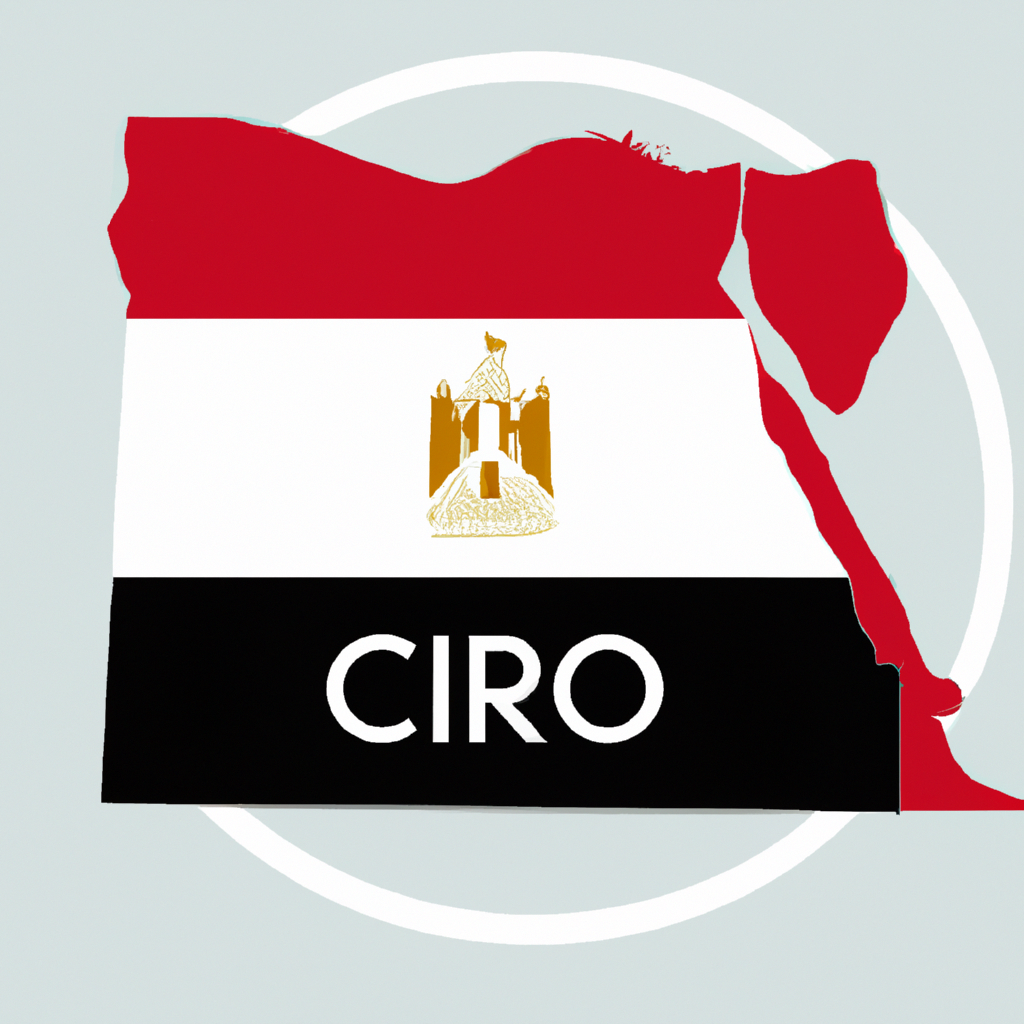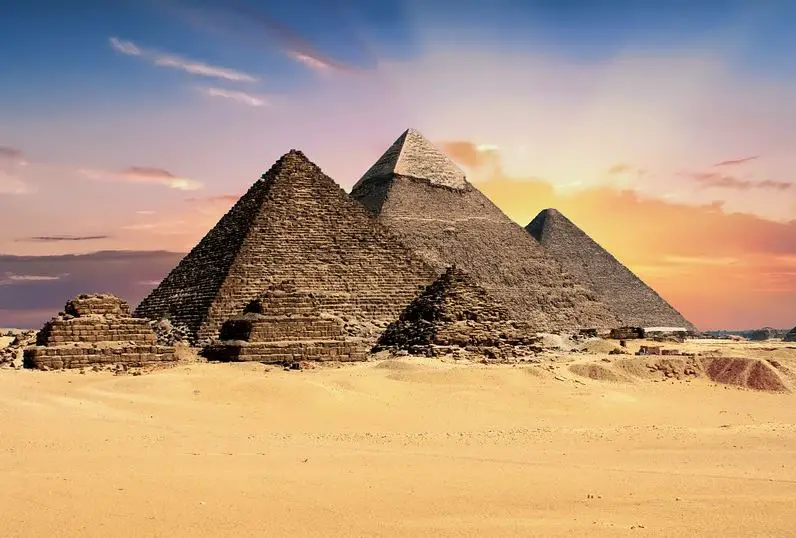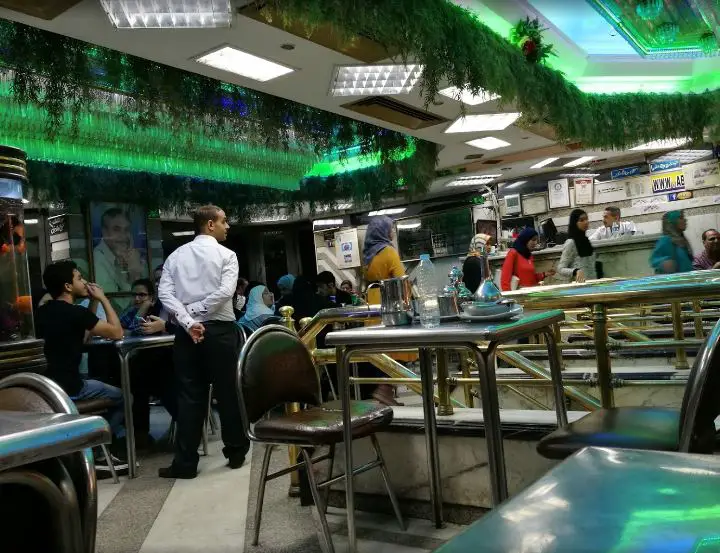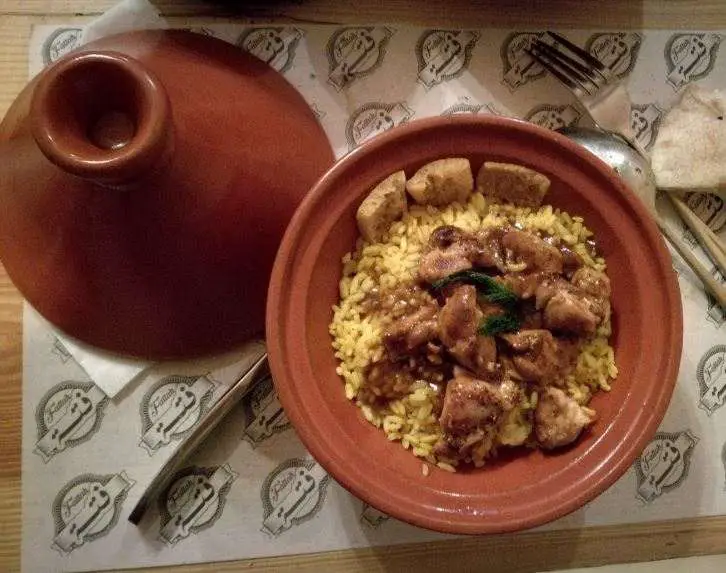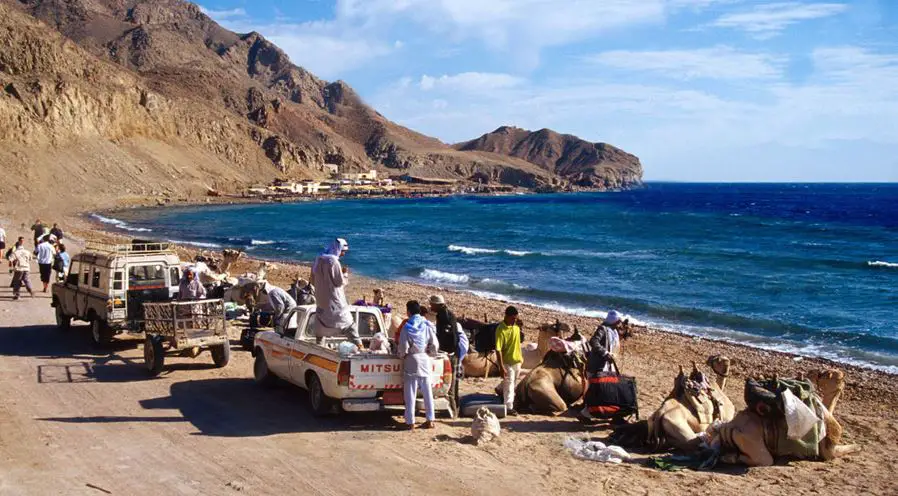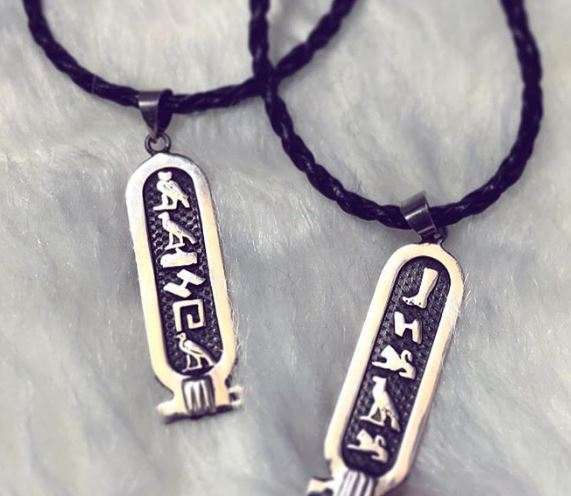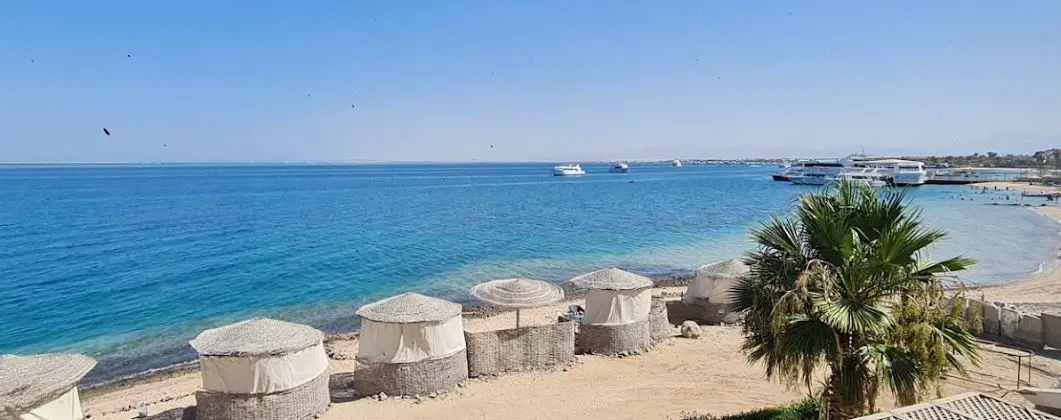Cairo, Egypt: Interesting Facts,History, Things to do,Why to Visit
Post ByAdequate Travel
Cairo, Egypt is one of the oldest cities in the world with an amazing history, interesting facts, and plenty of things to do. Located along the Nile River, the city’s beauty and culture captivate millions of visitors each year. Cairo’s historic sites are some of the world’s most important architectural treasures, and they attract a wide range of tourists. Rich in culture and cuisine, the city also has many fabulous shopping sites, galleries, museums, and markets. Come along and discover why you should be planning your visit to Cairo, Egypt.
Egypt, officially known as the Arab Republic of Egypt, is a transcontinental country located in Northeast Africa and the Middle East. It is bordered by Israel to the northeast, Libya to the west, Sudan to the south, and the Mediterranean Sea to the north.Egypt has a rich and ancient history that dates back more than 5,000 years, with its iconic landmarks like the Great Pyramids of Giza and the Sphinx drawing tourists from all over the world. The country has been ruled by various civilizations, including the Pharaohs, Persians, Greeks, Romans, and Arabs.Currently, Egypt is a republic with President Abdel Fattah el-Sisi as the head of state. Its capital and largest city is Cairo. The country's economy is primarily driven by tourism, agriculture, oil and gas, and the Suez Canal, which is an important international waterway connecting the Red Sea to the Mediterranean Sea.Egypt faces several challenges, including high unemployment rates, poverty, and political instability. The country has gone through significant political changes, most notably the 2011 revolution that toppled longtime President Hosni Mubarak. However, stability has been restored under President el-Sisi's administration, although human rights concerns and political repression have been raised by human rights organizations.Egypt is known for its rich culture, music, and cuisine. The Nile River, which flows through the country, has played a significant role in the development of Egyptian civilization, providing water for irrigation and transportation. The ancient temples and tombs along the Nile are also major attractions.Overall, Egypt is a fascinating country with a deep-rooted history that continues to attract tourists and researchers alike.Exploring the city's diverse neighborhoods is one of the best ways to discover the best egypt attractions, each with its own character and charm.
Interesting facts
1. Ancient Egyptian Civilization
Ancient Egypt was one of the earliest and longest-lasting human civilizations, lasting for over 3,000 years. The civilization emerged around 3100 BC and was known for its advanced culture, science, art, architecture, and political organization.
Examples:
- The Great Pyramid of Giza, built around 2580-2560 BC, is the oldest of the Seven Wonders of the Ancient World.- The ancient Egyptians developed a writing system called hieroglyphics, which used pictorial symbols to represent words and sounds.2. The Nile River
The Nile River played a crucial role in ancient Egyptian civilization, as it provided water, fertile soil, and transportation. It was considered sacred by the Egyptians, and the annual flooding of the Nile helped sustain their agricultural activities.
Examples:
- The Nile River is the longest river in Africa, stretching over 4,000 miles.- The ancient Egyptians relied on the Nile for transportation, using boats for trade and travel along its waters.3. Pharaohs and Pyramids
The pharaohs were the kings and rulers of ancient Egypt, considered to be divine beings. They were known for building impressive structures such as pyramids, which served as their tombs. The pyramids were constructed to ensure the pharaoh's immortality and provide a grand resting place.
Examples:
- The most famous pyramid is the Great Pyramid of Giza, which was built as a tomb for the pharaoh Khufu.- The construction of pyramids required immense manpower and architectural skills.4. Religion and Beliefs
Ancient Egyptians practiced a polytheistic religion, with a multitude of gods and goddesses. They believed in an afterlife and the importance of mummification to preserve the body for the journey to the afterlife. The gods and goddesses played a significant role in daily life, fertility, and agricultural practices.
Examples:
- Ra, the sun god, was considered the most important deity in ancient Egyptian mythology.- The Book of the Dead was a collection of spells and rituals used as a guide for the deceased in the afterlife.5. Legacy and Influence
Egyptian civilization has had a lasting impact on various aspects of human culture and history. Its influence can be seen in art, architecture, religious beliefs, and even modern-day traditions.
Examples:
- Egyptian art and symbols have influenced numerous cultures throughout history, including ancient Greece and Rome.- The concept of mummification and belief in the afterlife has influenced many burial practices and religious beliefs worldwide.From museums to parks,egypt tourist attractions offer something for everyone, making it a versatile destination for all type of tourists.The Ancient History of Egypt
Ancient Egypt is one of the world's oldest civilizations, with a recorded history that spans over 5,000 years. This fascinating civilization developed along the banks of the Nile River and left behind a rich legacy in terms of culture, architecture, and political structures. Here are some key points about the history of ancient Egypt:
1. Predynastic Period (c. 5500 - 3100 BCE)
During this period, small agricultural communities began to emerge along the Nile Valley. These communities eventually developed into larger settlements and witnessed the development of pottery, agriculture, and animal domestication.
2. Early Dynastic Period (c. 3100 - 2686 BCE)
This era marked the unification of Upper and Lower Egypt under a single pharaoh, creating the first dynasty. The most famous ruler of this period was Pharaoh Narmer, who is believed to have established the capital city of Memphis and the institution of kingship.
3. Old Kingdom (c. 2686 - 2181 BCE)
The Old Kingdom was the era when pyramids were built, including the Great Pyramid of Giza. It was characterized by strong central authority and the development of complex bureaucratic systems. The pharaohs of the 4th Dynasty, such as Pharaoh Khufu, Khafre, and Menkaure, constructed renowned pyramids as their tombs.
4. Middle Kingdom (c. 2055 - 1650 BCE)
This period marked a time of reunification and stability following a period of political fragmentation known as the First Intermediate Period. The power of the pharaohs was restored, and trade flourished with other civilizations such as Nubia and the Minoans of Crete.
5. New Kingdom (c. 1550 - 1077 BCE)
The New Kingdom is often referred to as the "Golden Age" of ancient Egypt. It was the time of powerful pharaohs like Amenhotep III, Akhenaten, and Ramses II. Egypt expanded its territories, built grand temples, and entered into military campaigns, including the famous Battle of Kadesh against the Hittites.
6. Late Period (c. 664 - 332 BCE)
During this era, Egypt experienced several invasions and changes in rulership. The most notable were the Persian conquest under Cambyses II and the conquest of Alexander the Great, leading to the Hellenistic period. Eventually, Egypt became a Roman province in 30 BCE.
7. Hellenistic and Roman Periods (332 BCE - 641 CE)
After the conquest of Alexander the Great, Egypt became part of the Hellenistic Seleucid Empire. Later, it was ruled by the Ptolemaic dynasty, descended from Alexander's general Ptolemy. The most famous ruler of this dynasty was Cleopatra VII. In 30 BCE, Egypt became a Roman province and remained under Roman control until the Arab conquest in 641 CE.
Through all these periods, ancient Egypt left an indelible mark on human history through its monumental architecture, intricate burial customs, hieroglyphic writing system, and religious beliefs centered around gods and goddesses. The pyramids, the Sphinx, and the Valley of the Kings are just a few examples of the incredible legacy that the ancient Egyptians have left behind.
Exploring the rich heritage of historical sites in egypt is a journey through time and culture.Famous Things of Egypt
1. Pyramids of Giza:
The Pyramids of Giza are one of the most famous landmarks in Egypt and are considered one of the Seven Wonders of the Ancient World. These grand structures were built as tombs for the pharaohs during the Old Kingdom period. The Great Pyramid of Giza is the largest of the three pyramids and is estimated to have been constructed around 2560 BC.
2. The Sphinx:
The Sphinx is a mythical creature with the body of a lion and the head of a human, located in Giza, Egypt. It is believed to represent the pharaoh Khafre and is known for its colossal size and mysterious expression. The Sphinx is closely associated with the Pyramids of Giza and has become one of Egypt's most famous landmarks.
3. Tomb of Tutankhamun:
The tomb of Tutankhamun, also known as King Tut, is a significant archaeological discovery that captured the world's attention in the early 20th century. Located in the Valley of the Kings, the tomb contained numerous precious artifacts and treasures, including the famous gold funerary mask of the young pharaoh. The discovery provided valuable insights into ancient Egyptian burial practices and the life of a pharaoh.
4. Luxor Temple:
Luxor Temple is a large temple complex located on the east bank of the Nile River in Luxor, Egypt. Built during the New Kingdom period, the temple was dedicated to the ancient Egyptian god Amun and served as a significant religious center. Its grandeur and intricate carvings make it one of the most popular tourist attractions in Egypt.
5. River Nile:
The River Nile is the longest river in Africa and has been a vital lifeline for Egypt throughout history. The river played a crucial role in the development of ancient Egyptian civilization, providing water for agriculture, transportation, and trade. Today, Nile cruises are popular among tourists, offering a unique way to explore Egypt's cultural sites and landscapes.
6. Karnak Temple Complex:
The Karnak Temple Complex is an impressive ancient religious site located near Luxor, Egypt. It is one of the largest temple complexes in the world and was dedicated to the worship of various Egyptian gods. The complex includes temples, chapels, obelisks, and statues, all showcasing the architectural and artistic achievements of the New Kingdom period.
Discover some unique facts about egypt that will leave you amaze and intrigue.Culture of Egypt
Egypt has a rich and diverse cultural heritage that has been shaped by its long history and geographical location. The country is known for its ancient civilization, pyramids, Pharaohs, and the Nile River. Here are some key aspects of Egyptian culture:
1. Ancient Egyptian Civilization
The ancient Egyptian civilization was one of the most advanced and influential in the world. They developed a complex society with a hierarchical structure, advanced mathematics, architectural feats like the pyramids, and a writing system known as hieroglyphics. The legacy of this civilization can still be seen in Egypt today through archaeological sites and museums.
2. Islamic Influence
Egypt has been predominantly Muslim since the 7th century when Arab conquerors brought Islam to the region. Islamic traditions and values heavily influence the culture and way of life in Egypt. Mosques, religious festivals, and Islamic art and architecture can be found throughout the country.
3. Arabic Language
The official language of Egypt is Arabic, and it plays a significant role in shaping the cultural identity of the country. Arabic is not only spoken but also used in literature, media, and official communication. However, there are also regional dialects and other languages spoken by minority groups.
4. Food and Cuisine
Egyptian cuisine is known for its diverse flavors and unique dishes. Staple foods include rice, bread, legumes, vegetables, and an abundance of herbs and spices. Popular dishes include koshari (a mixture of pasta, lentils, rice, and fried onions), falafel, and ful medames (fava beans stewed in spices). Traditional drinks include hibiscus tea and the popular caffeine-rich drink known as 'ahwa' (Arabic coffee).
5. Festivals and Celebrations
Egyptians celebrate various religious and national holidays throughout the year. Islamic holidays such as Eid al-Fitr and Eid al-Adha are important occasions for feasting and family gatherings. Other national celebrations include Sham el-Nessim (an ancient Egyptian spring festival) and the January 25th Revolution Day, which commemorates the revolution that took place in 2011.
6. Traditional Arts and Crafts
Egyptian culture is renowned for its traditional arts and crafts. The country is known for its intricate handwoven textiles, pottery, woodwork, jewelry, and metalwork. Traditional music and dance, such as the mesmerizing moves of belly dancing, are also an integral part of Egyptian culture.
Overall, Egyptian culture is a fusion of ancient traditions, Islamic influence, and contemporary elements. This unique blend makes Egypt a captivating and culturally rich destination.Immerse yourself in the local culture by exploring egypt's top-rated tourist attractions.Cuisine of Egypt
Egyptian cuisine is incredibly diverse and heavily influenced by its rich history and geographical location. The country's culinary traditions date back thousands of years, with a fusion of flavors from various civilizations, including Ancient Egyptian, Ottoman, Arab, and Mediterranean.Some notable aspects of Egyptian cuisine include:
Agricultural Influences:
Due to its location along the Nile River, Egypt has fertile agricultural land, resulting in a variety of fresh ingredients that are central to Egyptian cooking. Common crops include wheat, barley, vegetables such as onions, beans, lentils, and a wide range of fruits.
Street Food:
Egyptian street food is renowned worldwide for its delicious and affordable delicacies. Some popular street food options include:
Koshary: A flavorful mix of rice, macaroni, lentils, chickpeas, fried onions, and a tangy tomato sauce.
Ful medames: A traditional Egyptian breakfast dish consisting of slow-cooked fava beans seasoned with garlic, lemon, olive oil, and various herbs and spices.
Ta'meya (Egyptian falafel): Deep-fried balls of ground fava beans or chickpeas, often served with tahini sauce in sandwiches or as a vegetarian main course.
Hawawshi: A popular Egyptian sandwich made with spiced ground meat (usually beef or lamb) stuffed inside a pocket of baladi bread and then baked or grilled.
Traditional Dishes:
Egyptian cuisine has numerous traditional dishes that are cherished by locals and tourists alike. Some examples include:
Molokhia: A rich and hearty green soup made from the leaves of the molokhia plant, cooked with garlic, coriander, and usually served with rice and meat.
Mahshi: Stuffed vegetables, such as vine leaves, bell peppers, zucchini, or cabbage leaves, filled with a mixture of rice, herbs, and sometimes minced meat.
Kebabs and Grilled Meat: Egypt offers a wide range of grilled meat dishes, including kebabs (kofta), grilled lamb chops, and shish tawook (marinated chicken skewers).
Om Ali: A delicious traditional Egyptian dessert made with layers of puff pastry, nuts, and raisins soaked in sweetened milk, baked until golden and served warm.
Regional Specialties:
Various regions in Egypt have their own unique specialties, taking advantage of local ingredients and cooking techniques. Some examples include:
Alexandrian Cuisine: Known for its seafood dishes, such as Sayadieh (fish with rice) and Fattah (a flavorful dish involving rice, bread, meat, and garlic).
Sinai Cuisine: Offers a blend of Bedouin and Egyptian flavors, with popular dishes like Stuffed Camel (a Bedouin specialty), grilled lamb or chicken, and Sambousek (deep-fried pastry filled with meat or cheese).
Sa'id Cuisine: Commonly known for its hearty meat dishes like Koshary meatballs, Hamam Sousak (pigeon stuffed with rice), and Qatayef Asafiri (a sweet dessert filled with cream).
1. Visit the Pyramids of Giza
One of the must-see attractions in Egypt is undoubtedly the Pyramids of Giza. These ancient structures, including the Great Pyramid of Khufu, have stood for thousands of years and are a testament to the architectural prowess of the ancient Egyptians. Visitors can explore the pyramids from the inside, marvel at the intricate carvings and hieroglyphics, and even ride a camel around the desert surrounding the pyramids.
2. Explore the Valley of the Kings
The Valley of the Kings, located on the west bank of the Nile River in Luxor, is home to the tombs of many pharaohs from the New Kingdom period. Visitors can explore the intricate tombs, adorned with colorful murals and hieroglyphics, and learn about the fascinating history of ancient Egypt. The tomb of Tutankhamun is one of the most famous and well-preserved tombs in the Valley of the Kings.
3. Take a Nile River Cruise
A Nile River cruise is a fantastic way to experience the beauty of Egypt. From the comfort of a luxurious cruise ship, visitors can witness picturesque landscapes, ancient temples, and traditional Egyptian villages along the banks of the Nile. Some of the popular stops along a Nile River cruise include Luxor, Aswan, and the Temple of Kom Ombo.
4. Explore the Egyptian Museum in Cairo
The Egyptian Museum in Cairo is home to a vast collection of ancient artifacts, including the treasures of Tutankhamun. Visitors can marvel at the intricately crafted statues, sarcophagi, and jewelry from ancient Egypt. The museum provides a comprehensive overview of Egypt's rich history and offers a fascinating glimpse into its ancient civilization.
5. Relax in the Red Sea Riviera
For those seeking relaxation and beach activities, the Red Sea Riviera is the perfect destination in Egypt. Famous for its stunning coral reefs and clear turquoise waters, visitors can indulge in snorkeling, diving, and other water sports. Popular beach towns along the Red Sea Riviera include Sharm El Sheikh, Hurghada, and Dahab.
6. Visit Abu Simbel Temples
The Abu Simbel Temples, located in southern Egypt near the Sudanese border, are ancient monuments dedicated to Pharaoh Ramses II and his wife Nefertari. These colossal temples were relocated in a massive UNESCO-led operation to save them from being submerged during the construction of the Aswan High Dam. The intricate carvings and grandeur of the Abu Simbel Temples are a sight to behold and are of immense historical significance.
7. Experience a Hot Air Balloon Ride in Luxor
Luxor is a city full of ancient wonders, and a hot air balloon ride over this historic landscape offers a unique perspective. Visitors can witness the sprawling temples, the fertile Nile River, and the Valley of the Kings from high above. The tranquil experience of floating in the sky while taking in breathtaking views is an unforgettable adventure in Egypt.
8. Wander through Old Cairo
Old Cairo, also known as Coptic Cairo, is a historic district that showcases the city's rich religious history. Visitors can explore ancient churches, including the Hanging Church and the Church of St. Sergius and Bacchus, as well as the Ben Ezra Synagogue and the Mosque of Amr ibn al-As. The narrow streets, vibrant markets, and stunning architecture of Old Cairo provide a glimpse into the cultural tapestry of the city.
9. Discover the Temples of Karnak
The Temples of Karnak, located near Luxor, are a vast complex of ancient temples dedicated to the Egyptian gods. The main temple, the Temple of Amun, is the largest religious building ever constructed. Visitors can explore the towering columns, massive statues, and intricate hieroglyphics that adorn the temples, providing insight into the religious beliefs and rituals of the ancient Egyptians.
10. Experience the Whirling Dervishes Performance
The Whirling Dervishes of Egypt are practitioners of Sufism, a mystical Islamic belief system. Watching a mesmerizing Whirling Dervishes performance, known as a Sama, is a captivating experience. The performers spin in a ritualistic dance that represents spiritual elevation and a connection to God. This cultural experience offers a fascinating glimpse into the religious traditions of Egypt.
When planning your trip to egypt, be sure to include the best things to do in egypt, which encompass a wide range of cultural experiences.Climate of Egypt
Egypt has a predominantly desert climate, characterized by hot and dry conditions. The climate is influenced by the country's location in North Africa, bordered by the Mediterranean Sea to the north and the Sahara Desert to the west. Here are some important points about the climate of Egypt:Temperature and Seasons
1. Egypt experiences hot summers and mild winters. The average temperature during summer (June to August) ranges from 30°C to 35°C (86°F to 95°F), while in winter (December to February), it ranges from 17°C to 21°C (63°F to 70°F).2. Coastal regions, such as Alexandria and the Mediterranean coast, have more moderate temperatures due to the cooling effect of the sea breeze. Inland areas, especially near the desert, can get extremely hot, with temperatures exceeding 40°C (104°F).3. Egypt has two main seasons: a hot and dry summer, and a cooler and more temperate winter. Spring (March to May) and autumn (September to November) are transitional seasons, with mild temperatures.Precipitation
1. Egypt receives very little rainfall throughout the year, especially in desert areas. Most of the rainfall occurs during the winter months, mainly in coastal regions and the northern parts of the country. The average annual rainfall is around 2 to 5 cm (0.8 to 2 inches).2. The Nile River plays a crucial role in Egypt's water supply, as it provides irrigation for agriculture. The river's annual flooding in summer is vital for the country's agricultural productivity.Humidity and Wind
1. Egypt has low humidity levels, particularly in the desert areas. Humidity is slightly higher in coastal regions due to the influence of the Mediterranean Sea. The country experiences a Mediterranean climatic influence along the northern coast.2. The predominant wind in Egypt is the khamsin, a hot and dry wind that blows from the Sahara Desert. This wind is most common in spring and can cause sandstorms.Examples:
1. During the summer months, cities like Luxor and Aswan in southern Egypt can experience temperatures above 40°C (104°F).2. Alexandria, located along the Mediterranean coast, has milder temperatures compared to the rest of the country. The average summer temperature in Alexandria is around 27°C (81°F).3. Cairo experiences hot summers with temperatures reaching 35°C (95°F) or higher, while winter temperatures range from 9°C to 19°C (48°F to 66°F).4. The city of Siwa Oasis, located in the Western Desert, has extremely high temperatures in summer, often exceeding 45°C (113°F).5. Rainfall is scarce in Egypt, with some areas in the country not receiving any rainfall for several years. The Mediterranean coast receives the highest amount of rainfall, while the southern and eastern desert regions are the driest.6. The khamsin wind can blow for several days, causing reduced visibility due to sandstorms and increasing the feeling of heat.7. The Nile River Valley, with its fertile soil, offers a stark contrast to the arid desert climate surrounding it, thanks to the annual flooding and the river's presence.8. Egyptian agriculture heavily relies on irrigation from the Nile River, as the desert conditions make it challenging for farming without proper water supply.Uncover the best egypt attractions that will leave you awe-inspired and wanting more.Popular activities in Egypt:
1. Exploring Ancient Egyptian Sites:
One of the most popular activities in Egypt is exploring the ancient Egyptian sites that showcase the country's rich history. Visitors can explore iconic landmarks such as the Pyramids of Giza, the Sphinx, and the Valley of the Kings. These sites provide a glimpse into ancient Egyptian civilization and offer the opportunity to marvel at the impressive architecture and artifacts that have stood the test of time.
2. Nile River Cruises:
Taking a Nile River cruise is a popular activity for tourists visiting Egypt. These cruises allow visitors to witness the stunning scenery along the Nile, while also stopping at historical sites and charming towns along the way. Travelers can relax on board a luxury cruise ship, enjoy delicious meals, and explore landmarks such as Luxor, Aswan, and Edfu.
3. Diving and Snorkeling in the Red Sea:
Egypt's Red Sea coast is renowned for its crystal-clear waters, vibrant coral reefs, and diverse marine life. Diving and snorkeling enthusiasts flock to popular destinations such as Sharm El Sheikh, Hurghada, and Dahab to explore the underwater world. These areas offer a plethora of diving spots, including famous sites like the Blue Hole and the SS Thistlegorm shipwreck.
4. Desert Adventures:
With its vast desert landscapes, Egypt offers a unique opportunity for desert adventures. Visitors can engage in activities such as camel trekking, sandboarding, and quad biking across the sand dunes. The Western Desert and the White Desert are popular destinations for those seeking an adrenaline rush and a chance to experience Egypt's natural beauty.
5. Exploring Islamic Cairo:
In addition to its ancient Egyptian sites, Egypt is also known for its rich Islamic heritage. Islamic Cairo, located in the heart of the city, is home to numerous mosques, madrasas, and historical landmarks that reflect the country's Islamic history. Visitors can explore remarkable sites such as the Al-Azhar Mosque, the Citadel of Saladin, and the vibrant Khan El Khalili market.
These popular activities in Egypt offer a taste of the country's diverse attractions and provide visitors with a memorable experience. Whether you're interested in history, natural beauty, or cultural exploration, Egypt has something to offer for everyone.Plan your trip with a list of the best things to do in egypt, catering to all interests.Nightlife in Egypt
Egypt offers a diverse and vibrant nightlife scene, with plenty of options for both locals and tourists to enjoy. Here are some key aspects of Egypt's nightlife:
1. Major Cities and Tourist Hubs
Major cities in Egypt, such as Cairo, Alexandria, and Sharm El Sheikh, are known for their lively nightlife. These cities host a wide range of nightclubs, bars, and lounges where visitors can relax, socialize, and dance the night away. For example, Cairo's Zamalek neighborhood is popular for its trendy bars and rooftop venues, while Sharm El Sheikh has a thriving beachside party scene.
2. Traditional Entertainment
Egyptian culture is rich in traditional music and dance, which are often part of the nightlife experience. Visitors can enjoy live performances of belly dancing, folk music, and traditional Egyptian instruments like the oud and the qanun. These performances are commonly found in specialized venues or as part of cultural events and festivals.
3. Nile River Cruises
A unique way to experience Egypt's nightlife is by taking a night cruise on the Nile River. These cruises offer dinner, live entertainment, and breathtaking views of the illuminated city skyline. As you leisurely float along the river, you can enjoy music, dance shows, and often a traditional Tanoura or Sufi performance.
4. Cafes and Shisha Lounges
Cafes and shisha lounges play a significant role in Egyptian nightlife, particularly in Cairo and Alexandria. These establishments offer a relaxed and sociable atmosphere, where locals gather to enjoy tea, coffee, and hookah (shisha). Many cafes and lounges also feature live music performances or open-mic nights, creating a vibrant ambiance.
5. Street Food and Night Markets
Exploring Egypt's night markets and trying street food is an integral part of the nightlife experience. In cities like Cairo, Luxor, and Aswan, the bustling markets come alive at night, offering a variety of delicious and affordable local delicacies. Visitors can enjoy a vibrant atmosphere, taste Egyptian street food like falafel, koshary, and taameya, and shop for handmade crafts and souvenirs.
Overall, Egypt's nightlife caters to diverse interests and preferences, offering an exciting mix of modern clubs, traditional entertainment, cultural experiences, and culinary delights. Whether you prefer dancing at a high-energy nightclub, sipping tea in a cozy cafe, or immersing yourself in the traditions of Egyptian music and dance, there is something for everyone to enjoy in Egypt's vibrant nightlife scene.Exploring the city's diverse neighborhoods is one of the best ways to discover the best egypt attractions, each with its own character and charm.Reasons to Visit Egypt
There are several incredible reasons to visit Egypt, a country that is rich in history, culture, and natural beauty. Whether you are fascinated by ancient civilizations, stunning landscapes, or vibrant cities, Egypt has something for everyone. Here are some of the top reasons to visit this fascinating destination:Ancient Ruins and Landmarks
Egypt is home to numerous ancient ruins and landmarks that date back several millennia. One of the most iconic sites is the Great Pyramids of Giza, which include the famous Pyramid of Khufu. These colossal structures, built as burial monuments for pharaohs, continue to marvel visitors with their engineering marvels. Other significant ancient sites include the Temple of Luxor, the Valley of the Kings, and the Karnak Temple Complex.The Nile River
The Nile River, the longest river in Africa, is a prominent feature of Egypt. It offers breathtaking scenery along its banks and provides endless opportunities for exploration. A Nile River cruise is a popular way to travel between ancient sites while enjoying the stunning views of the river. This experience allows visitors to catch glimpses of local life, watch traditional felucca boats sail by, and witness the incredible sunsets that paint the sky over the river.Diverse Landscapes
Egypt boasts an incredibly diverse range of landscapes, from the golden sand dunes of the Western Desert to the pristine beaches of the Red Sea coast. The Western Desert, also known as the Sahara Desert, is a vast expanse of endless sand and rock formations that create a surreal atmosphere. On the Red Sea coast, you can enjoy crystal-clear waters, vibrant coral reefs, and the opportunity to experience world-class snorkeling and diving.Rich Cultural Heritage
Egypt's rich cultural heritage is evident in its traditions, art, music, and cuisine. Exploring local markets, known as souks, offers a glimpse into the vibrant Egyptian way of life. Visitors can indulge in traditional Egyptian dishes like koshari, falafel, and molokhia, immersing themselves in the country's culinary delights. Additionally, attending a traditional music or dance performance, such as the captivating Tanoura dance, allows visitors to experience the passion and beauty of Egyptian culture firsthand.Hospitality and Warmth
Egyptians are known for their hospitality and warm nature. Visitors to Egypt often remark on the welcoming and friendly attitude of the local people. Whether you are exploring ancient sites, visiting local villages, or simply strolling through the bustling streets of Cairo, you are likely to encounter the genuine kindness of the Egyptian people. This warm hospitality adds an extra layer of enjoyment to any visit to Egypt.Overall, Egypt offers a captivating blend of history, natural beauty, and unforgettable experiences. From exploring ancient ruins to cruising along the Nile River, indulging in local cuisine to immersing oneself in Egyptian culture, this country leaves a lasting impression on its visitors.Whether you're a history buff or an adventure seeker, egypt has an attraction for you. So, don't miss the chance to visit popular places in egyptNumber of Days Required to Visit Egypt
When planning a trip to Egypt, the number of days required to fully explore the country will vary depending on several factors such as the places you want to visit, your travel preferences, and the time you have available. Here we will provide a general guideline on the number of days needed to visit some of the popular tourist destinations in Egypt:
Cairo and Giza (3-4 days)
Exploring the capital city and the famous Pyramids of Giza typically requires a minimum of 3-4 days. This allows for visits to the iconic sites like the Egyptian Museum, the Great Sphinx, and the ancient wonders of the Giza Plateau. It also allows time to experience the vibrant culture and bustling markets of Cairo.
Luxor (2-3 days)
Luxor, known as the "world's greatest open-air museum," is home to a wealth of ancient Egyptian ruins and temples. To fully appreciate Luxor's treasures, including the Valley of the Kings, Karnak Temple, and Luxor Temple, it is recommended to spend at least 2-3 days in the city.
Aswan (2 days)
Situated along the Nile River, Aswan offers a serene and picturesque landscape dotted with historical sites. A 2-day visit to Aswan allows for exploring attractions such as Philae Temple, the Unfinished Obelisk, and a relaxing felucca boat ride on the Nile.
Alexandria (2 days)
Alexandria, situated on the Mediterranean coast, showcases a blend of ancient and modern attractions. Spending 2 days in Alexandria gives you ample time to visit the iconic Bibliotheca Alexandrina, explore the Catacombs of Kom El Shoqafa, and stroll along the charming Corniche.
Red Sea Resorts (4-5 days)
If you wish to include some beach and relaxation time during your Egyptian journey, consider visiting one of the popular Red Sea resorts like Hurghada or Sharm El Sheikh. Allocating 4-5 days allows for enjoying the beautiful beaches, engaging in water activities like snorkeling or diving, and exploring the vibrant underwater world of the Red Sea.
Additional Considerations
It's important to note that the suggested number of days for each destination is a general guideline to ensure you have enough time to explore the main highlights. However, you can always adjust the duration according to your personal preferences and interests.
Also, keep in mind that travel logistics, like transportation time between cities, may affect the overall duration of your trip. For example, if your itinerary includes multiple cities, you will need to factor in travel time and adjust the number of days accordingly.
Lastly, if your interest lies in in-depth exploration of historical sites or particular regions in Egypt, you might consider allocating additional days to enhance your experience and have a more comprehensive visit.
egypt tourist attractions offer a diverse range of experiences for every traveler.The Significance of Egypt
Egypt holds significant historical, cultural, and geopolitical importance. Here are some key points explaining the significance of Egypt:
Historical Importance
- Ancient Civilization: Egypt is renowned for its ancient civilization, which flourished along the Nile River more than 5,000 years ago. The Egyptians left a lasting legacy in areas such as architecture, art, religion, and writing.
- Pharaohs and Pyramids: Egypt's pharaohs, considered god-kings, built magnificent pyramids to serve as their tombs. These towering structures, particularly the Great Pyramid of Giza, represent human ingenuity and architectural brilliance.
- Rosetta Stone: The Rosetta Stone, discovered in Egypt in 1799, proved instrumental in deciphering ancient Egyptian hieroglyphs. This breakthrough allows us to gain insights into the country's rich history and culture.
Cultural Significance
- Ancient Egyptian Mythology: Egypt's mythology, with gods and goddesses like Ra, Isis, and Osiris, has greatly influenced world religions, including Greek, Roman, and even modern-day religions.
- Hieroglyphs and Papyrus: Egypt's hieroglyphic writing system, inscribed on their temples and tombs, reveals important aspects of their culture. The discovery and translation of ancient texts, written on papyrus scrolls, shed light on Egypt's literature, scientific knowledge, and social practices.
- Ancient Medicine and Mathematics: Egypt made significant contributions to medical practices and mathematical knowledge, evident through their use of herbal remedies and advancements in areas like geometry and arithmetic.
Geopolitical Importance
- Suez Canal: Egypt controls the Suez Canal, a crucial maritime route that connects the Mediterranean Sea with the Red Sea, allowing ships to avoid the lengthy journey around the African continent. This canal plays a vital role in international trade and global economy.
- Regional Stability: Egypt's geopolitical location has made it a key player in maintaining stability in the Middle East and North Africa. Its peace treaty with Israel, signed in 1979, has played a significant role in regional diplomacy and the Arab-Israeli conflict.
- Cultural Diplomacy: Egypt's diverse cultural heritage attracts millions of tourists annually, contributing greatly to its economy. From iconic landmarks like the Pyramids of Giza to archaeological sites in Luxor, Egypt showcases its historical importance through cultural diplomacy.
In conclusion, Egypt's significance lies in its historical, cultural, and geopolitical aspects. Its ancient civilization, pharaohs, pyramids, and the Rosetta Stone illuminate the past. The influence of Egyptian mythology, hieroglyphs, and medical/mathematical advancements are globally recognized. Geopolitically, Egypt's control over the Suez Canal and its role in regional stability, along with cultural diplomacy, make it a country of great importance.From hidden gems to iconic landmarks, egypt has something for every traveler's taste.Question: What is the capital city of Egypt?
The capital city of Egypt is Cairo.
It is the largest city in the country and is located on the banks of the Nile River. Cairo is a vibrant and bustling metropolis, known for its rich historical and cultural heritage.
Example: Cairo is home to many iconic landmarks, such as the Pyramids of Giza, the Egyptian Museum, and the Citadel of Saladin.
Question: What is the official language of Egypt?
The official language of Egypt is Arabic.
Arabic is spoken by the majority of the population, and it is also the language of government and business in the country.
Example: While Arabic is the official language, English is widely understood and spoken in tourist areas and by professionals in sectors such as hospitality and tourism.
Question: What is the currency of Egypt?
The currency of Egypt is the Egyptian pound (EGP).
It is divided into smaller units called piastres, with 100 piastres equal to 1 pound.
Example: When exchanging currency, it is important to note that the banknotes in circulation come in different denominations, such as 5, 10, 20, 50, 100, and 200 pounds.
Question: What are the popular tourist attractions in Egypt?
Egypt is renowned for its stunning historical sites and diverse landscapes.
Some popular tourist attractions in Egypt include the Pyramids of Giza, Luxor's Karnak Temple, the Valley of the Kings, Abu Simbel, Sharm el-Sheikh's beautiful beaches, and the serene beauty of the Nile River.
Example: Visitors to Egypt often enjoy exploring ancient wonders like the Sphinx and the Temple of Horus at Edfu, as well as taking a cruise along the Nile to witness the country's breathtaking landscapes.
Question: What is the climate like in Egypt?
Egypt has a desert climate characterized by hot summers and mild winters.
Summers are usually dry and extremely hot, with temperatures often exceeding 40°C (104°F), while winters are generally mild, with temperatures ranging from 9°C to 19°C (48°F to 66°F) in coastal areas.
Example: In popular tourist areas like Cairo and Luxor, the best time to visit is during the spring (March to May) and autumn (September to November) when temperatures are more moderate.
Discover unique facts about egypt, a destination filled with rich history and natural beauty.